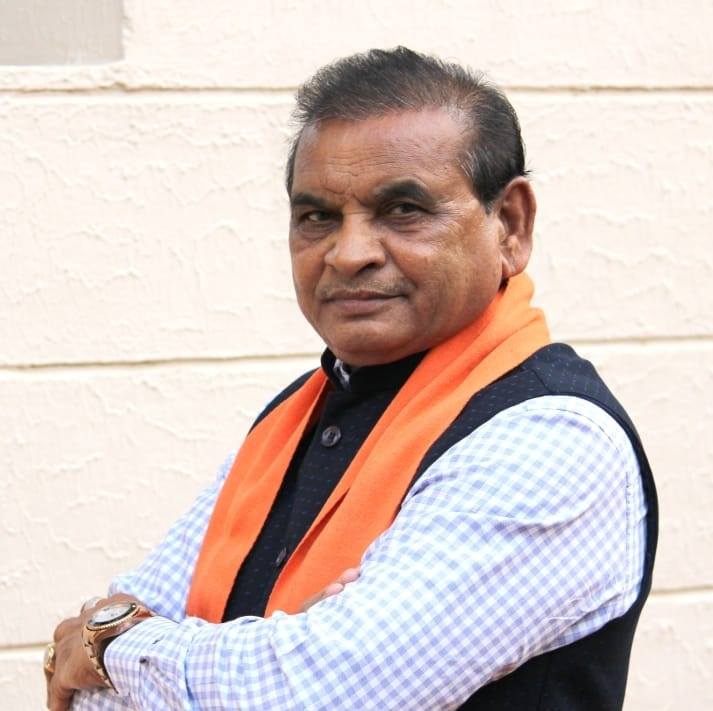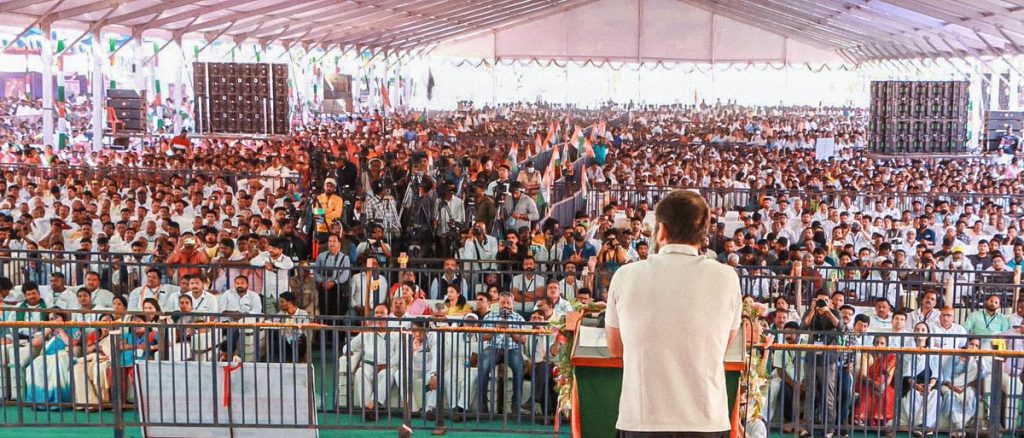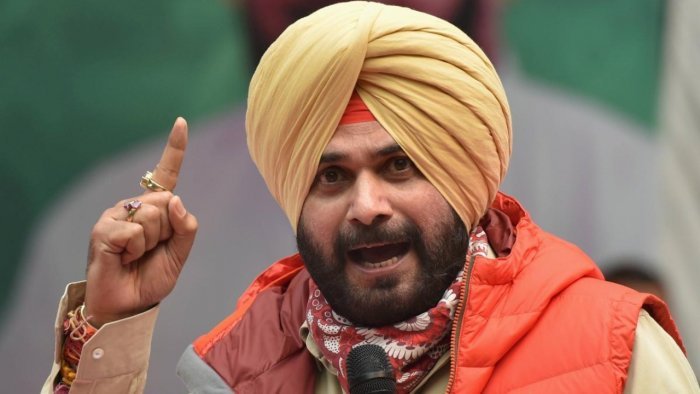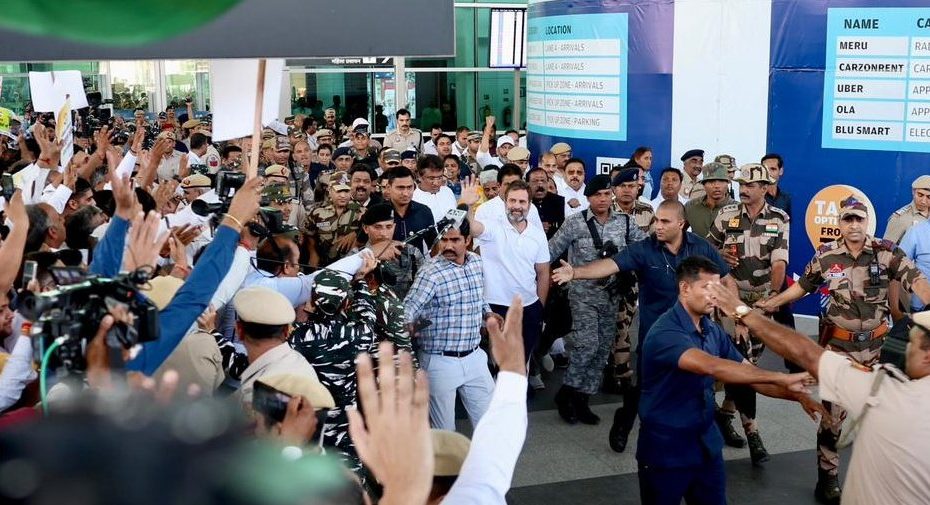The 8th Additional Sessions Judge, Surat, Robin P. Mogera, in his April 20 order dismissing Rahul Gandhi’s appeal seeking suspension of his conviction and sentence in the defamation case relied on a crucial Supreme Court order. The apex court order which gave relief to Bharatiya Janata Party (BJP) MP, Naranbhai Bhikhabhai Kachhadiya, who was not, unlike Rahul Gandhi, disqualified following his conviction under the Scheduled Castes and Scheduled Tribes (Prevention of Atrocities) Act, 1989.
The allegation against Kachhadiya was that he along with four other accused persons assaulted Dr. Bhimjibhai Laljibhai Dabhi, while he was on duty. The doctor then filed a complaint against Kachhadiya and the other four accused persons. A charge-sheet was filed against the accused under Sections 332, 186 and 143 (and other sections) of the Indian Penal Code (IPC) and Section 3(1)(x) of the 1989 Act.
Kachchadiya’s conviction remained for 16 days in 2016 till the Supreme Court suspended it. Yet, he was not disqualified from the Lok Sabha swiftly, as happened in the case of Rahul Gandhi. Kachchadiya claimed that he could evade disqualification, because he moved the courts promptly after his conviction, unlike Rahul Gandhi.
The Supreme Court’s order in the case of Naranbhai Bhikhabhai Kachchadia vs State of Gujarat was pronounced by a two-judge bench of Justice Madan B. Lokur and Justice N.V.Ramana on April 29, 2016.
The sentence awarded by the trial court after the conviction was three years’ imprisonment for the offence punishable under Section 332 of the IPC and six months’ imprisonment for the offence punishable under Section 143 of the IPC. The sentences were to run concurrently.
The Gujarat high court admitted Kachchadia’s appeal and stayed his sentence.
The Supreme Court’s order noted that the high court declined to stay the conviction on the ground that an exceptional case was not made out by the appellant. The Supreme Court bench also noted that in terms of Section 8 of the Representation of the People’s Act (RPA), 1951, the conviction entails his automatic disqualification for a period of six years from the membership of parliament.

The Supreme Court bench noted in its order that a compromise was entered into by the five accused persons with the victim, Dr. Dabhi, on April 1, 2016, which was before the conviction.
A copy of the compromise was on record and was also filed in the Court of Special Judge of Amreli, Gujarat, which convicted the MP. Pursuant to the compromise, the accused persons as well as the victim, Dr.Dabhi, appeared before the Special Judge at Amreli and stated that the compromise had been arrived at wilfully and without any kind of pressure.
However, since the offences were not compoundable, the Special Judge was unable to act upon the compromise, the Supreme Court order noted.
The Supreme Court bench then heard the counsel for the parties on the issue of whether the proceedings against the appellant should be quashed in view of his acquittal on a more serious offence under Section 3(1)(x) of the Act and the compromise as well as in view of the further statement made on behalf of the appellant in the Supreme Court that he was prepared to pay compensation to Dr.Dabhi (the victim) and also furnish a bond of good behaviour to the satisfaction of the Special Judge at Amreli. The bench then found that this was a fit case for quashing the proceedings initiated against the appellant.
Judge Mogera as well as the complainant’s counsel correctly relied on this order to distinguish it from the case of Rahul Gandhi. Curiously, however, both the Judge as well as the counsel of the complainant ignored the reasoning in the Supreme Court’s order.
In their order, the Lokur-Ramana bench reasoned that adverse consequences would certainly follow not only to the appellant but also to his constituents in case the conviction remained. “The impact would virtually be irreparable,” the Judges recorded in their order.
More importantly, the bench considered the “somewhat exceptional consequence of the disqualification of the appellant from representing his constituents in Parliament for six years and no special reason was given (by the trial court) for awarding the maximum punishment to the appellant”.
The bench thus quashed the prosecution against the appellant only but made it clear that he would pay to Dr.Dhabi an amount of Rs 5 lakh by way of compensation within a period of one week and would also furnish to the satisfaction of the Special Judge at Amreli a bond for good behaviour for a period of one year within one week from the date of the order. The Special Judge was asked to ensure compliance and inform the Court accordingly.
Judge Mogera’s order, after referring to the Supreme Court’s order, said selectively: “Supreme Court, while allowing appeal had not disturbed or quashed the finding of the High Court, but the appeal was allowed based on the above circumstances”. Judge Mogera’s order also got the case number wrong: it is Criminal Appeal No.418 of 2016, and not Criminal Appeal No.481 of 2016, as mentioned.
Obvious flaws in Mogera’s order
Judge Mogera referred to Paragraph 10 of the Supreme Court’s judgment in Navjot Singh Sidhu’s case (2007) which held that it is not necessary to minutely examine the merits of the case, for the purpose of staying or suspending the order of conviction.
However, Judge Mogera did exactly that, just as the Supreme Court bench which heard Sidhu’s case considered it proper to refer to the evidence, which it claimed, had an important bearing on the nature of the offence, committed by him.
In doing so, Judge Mogera has repeated a factual inaccuracy in describing Rahul Gandhi’s alleged offence, like many others. Rahul Gandhi’s speech during the 2019 election campaign at Kunar, a village near Bengaluru, has been cited to allege defamation. The question asked by Rahul Gandhi, “why all thieves are having the surname of Modi?” was repeated by Judge Mogera, without the context which preceded the question.

If one considers the context, it is clear that Rahul Gandhi actually expressed his surprise why the three, Nirav Modi, Lalit Modi and Narendra Modi share the surname, Modi. It is useful to recall the exact words spoken by him, as reproduced by the Indian Express.
“One small question, how are the names of all these thieves ‘Modi, Modi, Modi’… Nirav Modi, Lalit Modi, Narendra Modi, and if you search a little more, aur bahut saare Modi niklenge (many more Modis will emerge).”
It is clear that Rahul Gandhi mentioned “these thieves” and not “all thieves”. The distortion of what exactly he said makes all the difference in the context of defamation being a criminal offence. The phrase “these thieves” refer only to the three, namely, Nirav Modi, Lalit Modi and Narendra Modi.
Rahul Gandhi’s question made sense because, in the very same speech, he had repeated the allegations against them, which were already in the public domain, in public interest. After all, the First Exception to Section 499, Indian Penal Code, says it is not defamation to impute anything which is true concerning any person, if it be for the public good that the imputation should be made or published. The First Exception adds that whether or not it is for the public good is a question of fact.
Rahul Gandhi’s following statement – “If you search a little more, many more Modis will emerge – is not as defamatory as it is alleged. It is because he has clearly hinted that it requires search, and while he meant that it would yield more Modi surnames, he did not clearly suggest that these surnames would also belong to the same category as the three Modis. He was clearly entitled to the benefit of doubt insofar as this phrase is concerned.
Judge Mogera, after recounting the complainant’s counsel, Harshit Tolia’s contentions, based on an incorrect reproduction of Rahul Gandhi’s speech, acknowledges that if he dealt with this issue in detail, it would cause prejudice to the parties at the time of the final hearing of appeal. Yet, he reached the conclusion that “such defamatory remarks would have certainly harmed his (the complainant’s) reputation and caused him pain and agony in society”.
Judge Mogera did so only because the complainant, Purnesh Modi is an ex-minister and involved in public life. Clearly, while judging whether the trial court correctly decided the maintainability of the complaint, Judge Mogera considered only the complainant’s position in the society, rather than his tall claims about Rahul Gandhi’s remarks having wounded the pride of all Modis.
Judge Mogera, in order to rebut Rahul Gandhi’s senior counsel, R.S. Cheema’s questioning of the trial court’s findings about his speech, went into great detail about the reliability of evidence, though he could have avoided doing so at this stage, going by his own reliance on the Supreme Court’s guidelines not to do so in Sidhu’s case.
Sidhu’s case
In Navjot Singh Sidhu vs State of Punjab (2007), the Supreme Court suspended the conviction and sentence of Sidhu in a road rage case in order to enable him to contest the Amritsar Lok Sabha by-poll. Sidhu was a sitting member of parliament, who after being convicted and sentenced, resigned from his seat on moral grounds and expressed his desire to go to the people for a fresh mandate in changed circumstances.
It was argued that in order to maintain the purity and probity of democratic institutions, the criminalisation of politics should be stopped and the persons who have been convicted of any offence should not be allowed to enter parliament. Disagreeing with this contention, the apex court observed that the court has to interpret the law as it stands and not on moral considerations which may be perceived to be morally more correct or ethical.

In the court’s view, Sidhu had set a high standard in public life by resigning from his seat and seeking to get a fresh mandate from the people. If he had been elected, he would certainly have the greater moral authority to represent the constituency, it reasoned. Thus it stayed his conviction and sentence and allowed him to contest the election.
The Supreme Court in the Sidhu case further observed that if the relief prayed for was not granted, he would suffer irreparable loss as he would not be able to contest for the seat which he held and had fallen vacant due to his voluntary resignation which he did purely on moral grounds. Ironically, Judge Mogera did not find this part of Sidhu’s judgment of the apex court useful in his order.
The court considering the petition for suspension of conviction and sentence, as a rule, cannot go into the evidence on the basis of which the accused was convicted. For, it would affect the ultimate consideration of appeal in view of the observation made in the suspension petition. However, the Supreme Court, on the contrary, examined the evidence touching upon the criminality of the appellant in Sidhu’s case. The Supreme Court in the Sidhu case examined the relevant pieces of evidence touching upon the guilt of the appellant and found it prima facie in his favour. This observation of the court, however, did not affect the ultimate consideration of his appeal.
Other flaws in Mogera’s reasoning
Judge Mogera has uncritically accepted the complainant’s claim that Rahul Gandhi, after failing to challenge the lack of territorial jurisdiction earlier, could not, at the belated stage of the trial, allege that it was being vitiated for the same reason.
Judge Mogera has erroneously assumed that the sentencing discretion of the trial Judge is guided by the status of the accused in society, rather than the severity of the offence alleged. Judge Mogera said that as Rahul Gandhi was not an ordinary person and was a sitting MP, connected with public life, any word spoken by him would have a large impact in the mind of the common public. As a high standard of morality is expected from him, the trial court had inflicted the maximum sentence under the law, he has held.
His understanding of the sentencing discretion is completely misconceived. A sentencing Judge ought to consider the quantum of the sentence in proportion to the gravity of the offence. The gravity of the offence is not enhanced by the mere fact that the accused is not an ordinary person. Such an understanding of the sentencing discretion is against the rule of law.
Judge Mogera, while disputing Rahul Gandhi’s plea that not staying the order of conviction would cause him irreparable and irreversible injury, ignored the reasoning adopted by the Kerala high court recently, while giving similar relief to Lakshadweep MP Mohammed Faizal, in an attempt to murder case.
The high court, in this case, reasoned as follows: “ The next general election to the Parliamentary Constituencies in India is required to be held in the year 2024. If the election to the constituency of Lakshadweep is to be held immediately on account of the conviction and consequent disqualification of the second petitioner, the financial burden upon the Government and indirectly upon the people is immense. Even after incurring enormous expenditure for the election, the elected candidate will have a term of only a period of fewer than fifteen months. The aforesaid irreversible outcome cannot be ignored by this Court since the consequence of not suspending the conviction is drastic. No doubt, the case falls under the category of rare and exceptional situation warranting a suspension of the conviction.”
The high court added: “Thus, the consequence of not suspending the conviction of the second accused, as mentioned earlier, is drastic not only for the second petitioner but even for the nation. With the fear of repetition, it is observed that the cumbersome process of elections will have to be started, and the exorbitant cost of a Parliamentary election will have to be borne by the nation and indirectly by the people of this Country. The enormity of administrative exercises required for the conduct of an election will inevitably lead to various developmental activities in the Union Territory of Lakshadweep coming to a halt for a few weeks atleast. Despite all these exercises and financial burdens, the maximum period for which the elected candidate can function will be only a period less than fifteen months.”
This article was originally published on The Wire on April 22, 2023 and written by V. Venkatesan.












